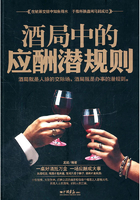Harry was not a little rejoiced at the recovery of so large a portion of his lost money, and the prospect of getting back the rest. He foresaw that there would be some embarrassment in meeting him, but he resolved, not by look or word, to suggest what had happened. Accordingly when, the day afterward, he met Luke on the bridge, he said, pleasantly, ``Good-morning, Luke.''
``Good-morning,'' said Luke stiffly.
``He'll get over it when he finds I don't speak of it,'' thought Harry.
On Saturday evening, according to his arrangement, Luke was to have paid the surplus of his wages, after meeting his board bill, to Mr. Merrill, for Harry.
But he did not go near him. On Mon day the tailor, meeting him, inquired why he had not kept his agreement.
``I had my wages loose in my pocket, and managed to lose them somehow. I've looked everywhere, and can't find the money.''
``That is very singular,'' said the tailor, suspiciously.
``Why is it singular?'' asked Luke. ``Didn't Harry Walton lose his money?''
``Where do you think you lost the money?'' asked Merrill.
``I'm sure I don't know,'' said Luke.
``Well,'' said Merrill, dryly, ``I hope you will take better care of your wages next Saturday evening.''
``I
don't believe a word of what he says about losing his money,'' said the tailor, privately, to Harry. ``I think it's only a trick to get rid of paying you.''
``Don't you think he'll pay me?'' asked Harry, anxiously.
``He won't if he can help it,'' was the answer.
``He's a slippery customer. I believe his money is in his pocket at this moment.''
He intended to run away, leaving all his creditors in the lurch. This was the ``new way to pay old debts,'' which occurred to Luke as much the easiest.
Besides, he would have the satisfaction of leaving the tailor and Harry, both of whom he hated, to whistle for their money.
The next Saturday evening, Mr. Merrill waited in vain for a call from his debtor.
On Monday morning he learned that Luke had left town without acquainting any one with his destination. It transpired, also, that he was owing at his boarding house for two weeks' board. He was thus enabled to depart with nearly thirty dollars, for parts unknown.
``He has evidently been saving up money to help him out of town. Probably he has gone to some other place where there are shoeshops; but I am afraid that won't give us a very definite clew. Some time we may get upon his track, and compel him to pay up.''
``That won't do me much good,'' said Harry, despondently. And then he told the tailor why he wanted the money.
``You'll have most of it ready, won't you?''
``I
think I will.''
``No doubt this man that sold your father the cow will wait for the balance.''
``I don't know about that,'' said Harry, doubtfully.
``I
would lend you the money myself,'' said the tailor, ``but I've got a heavy payment to meet, and some of my customers are slow pay, though I have not many as bad as Luke Harrison.''
``Thank you, Mr. Merrill,'' said Harry. ``I am as much obliged to you as if you could lend me the money.''
The very next day Mr. Leavitt received a message from the wholesale dealer to whom he sold his shoes that the market was glutted and sales slow.
``I
shall not want any more goods for a month or two,'' the letter concluded. ``Iwill let you know when I need more.''
Mr.
Leavitt read this letter aloud in the shop.
``So it seems we are to have a vacation,'' he said.
This was a catastrophe for which Harry was not prepared. Twenty-three dollars were all that he had saved from the money lost.
``Do you think I can get into any other shop in town?'' he inquired anxiously of Mr.
Leavitt.
``You can try, Harry; but I guess you'll find others no better off than I.''
He devoted the next day to going round among the shops; but everywhere he met with unfavorable answers.
``It seems as if all my money must go,'' thought Harry. ``First the ten dollars Luke Harrison stole. Then work stopped. I don't know but it would be better for me to go home.''
``I
won't give up yet,'' said Harry, pluckily. ``I must expect to meet with some bad luck. I suppose everybody does, first or last. Something'll turn up for me, if I try to make it.''
During his first idle day, Harry's attention was drawn to a handbill which had been posted up in the store, the post the tavern, and other public places in the village. It was to this effect: PROFESSOR HENDERSON, THE CELEBRATED MAGICIAN, Will exhibit his wonderful feats of Magic and Sleight-of-Hand in the Town Hall this evening, commencing at eight o'clock. In the course of the entertainment he will amuse the audience by his wonderful exhibition of Ventriloquism, in which he is unsurpassed.
Tickets 25 Cents. Children under twelve, 15 cents.
Such was the notice which attracted Harry's attention.
``Are you going to the exhibition, Walton?'' asked Frank Heath.
``I
don't know,'' said Harry.
``Better come. It'll be worth seeing. The professor's stopping at the tavern.
Come over and we may see him,'' said Frank.
Harry felt some curiosity to see the magician, and accompanied his companion thither.















